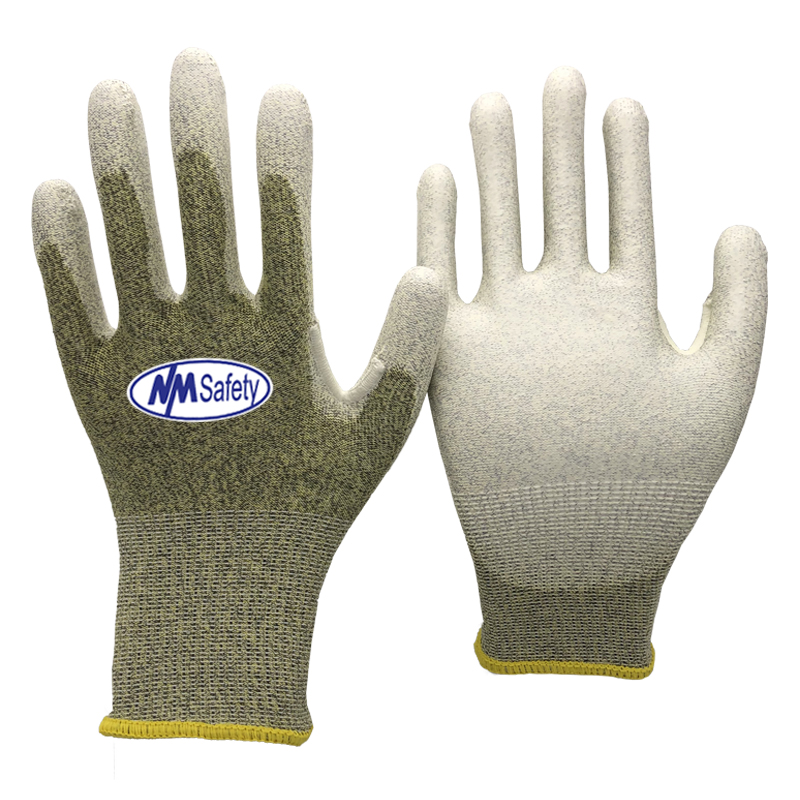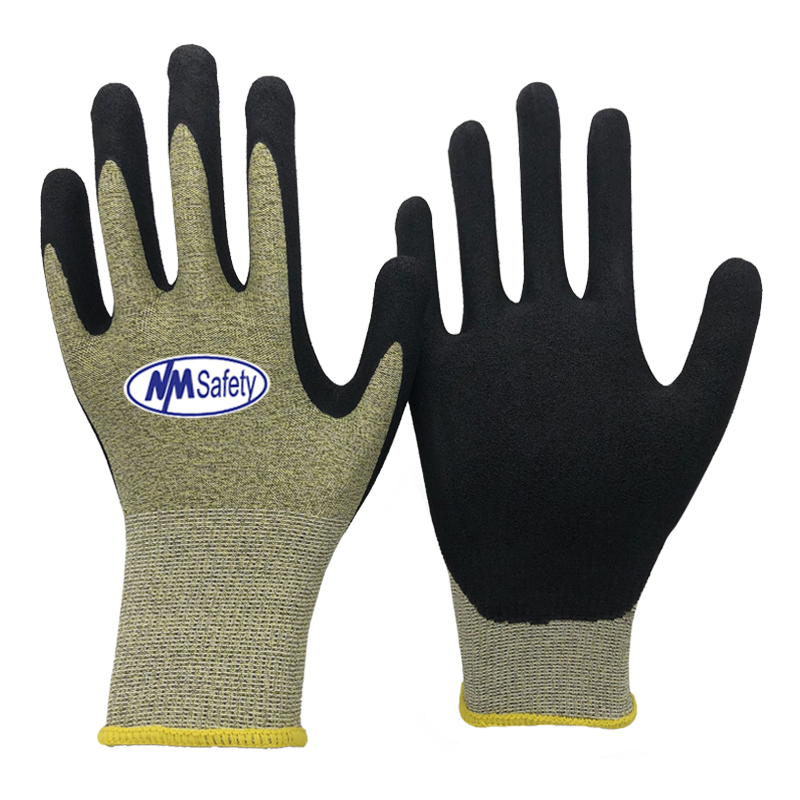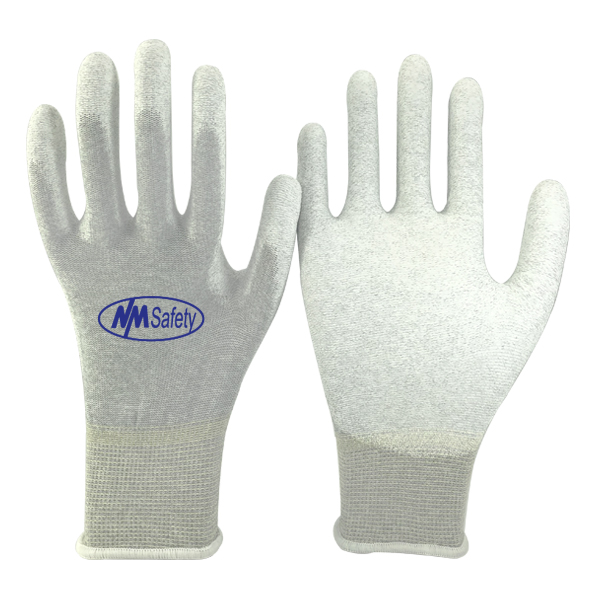Anti Static Gloves
Category
Industry
lf you can't find the product you need, please Email Us and we are happy to help.
Anti Static Gloves
What are Anti-static Gloves?
When an individual is assembling electrical parts, executing lab work, applying metal coatings, taking care of delicate, or dealing with static-inclined materials then ESD or antistatic gloves should be worn with which electrostatic charges are smothered. To guarantee a minimal measure of electrostatic release, consistently wear a neutralizing wrist band. For this purpose, NMSafety has been eminent for giving premium quality gloves that are astounding in filling the roles precisely, yet additionally offer a decent scope of adaptability, solace, and longevity, settling on them is a worthy decision. Their range of static gloves can diminish the gamble of electrostatic release fittingly dissimilar to numerous other antistatic materials like ESD-safe matting, they are not fastened.
Types Of Anti-Static Gloves Based On Material:
Here, we have classified gloves according to the material that provides you medium to full protection with certain levels making them easy to use.
Fabric Gloves:
Because they are easy to recycle and can be cleaned multiple times, they seem to be extremely inexpensive than disposable gloves. They are available in a multitude of textures, including elastic, low-lint, and lint-free. When it comes to picking a glove, fabric gloves provide the most options.
Latex Gloves:
They're economical, long-lasting, and incredibly flexible. As latex provides excellent fit, this is perhaps the least expensive and widely used material for anti-static gloves. Latex gloves have the disadvantage of being unsatisfactory to persons who have a latex allergy.
Nitrile Gloves:
To wrap things up, there are nitrile gloves, which are known for giving unrivaled shock obstruction. At the point when ESD might involve risking someone’s life or harm to electronics and related parts, nitrile is ordinarily the endorsed material. Since engineered elastic is a protecting material, it has the specific inverse characteristics of those expected in ESD applications, So, we infer that all nitrile gloves have extremely antistatic properties.
Coating Specifications for Anti-Static Gloves:
Touch and tension charging can be protected by wearing Antistatic Gloves.
- To avoid turboelectric and electrostatic charging, as well as particles, it should include long fluffy nylon strands containing carbon.
- It should be incredibly elastic and form-fitting.
- Prevents dust yield by avoiding friction and contact charging.
- The fingertips must have a PU coating that allows for sensitive work easier.
- The gloves ideally have a thickness of 13-15 gauge.
- It should offer a surface resistivity of 1.3 x 108Ω for the resin part while 2.8 x 108Ω for the fiber part.
How To Choose Your Anti-Static Gloves?
Pricey Over Time:
Gradually, the price of new gloves will increase. Fabric gloves are recyclable, and rubber-made gloves are less expensive than other options. The glove's price will be determined primarily by the material you select.
Employee Concerns about Safety:
Be careful about your employees, have a check if they are allergic to certain materials as they might have latex hypersensitivity. This is a basic requirement in the decision-making approach.
Chemical Interaction:
Dangerous liquids like chemicals or acid are usually found in the working environment and what sort of impact do they have on the gloves you are utilizing. The second important thing is what sort of synthetic compounds are utilized in making such gloves because certain substance reactivity’s are bad to work with.
Electric Resistivity:
For the ideal degree of ESD safety, a glove ought to provide – Essentially figuring out how proficiently the glove conducts power and whether it diminishes the occurrence of electrostatic release.
Benefits Of Using Anti-Static Gloves:
Shock Absorbance:
While working in a computer or electronic manufacturing industry you might be at risk of electric shocks. The electric safety gloves have a high dielectric and raw endurance, as well as being versatile and long-lasting, ensuring the user's comfort. These antistatic gloves can be chosen by the level of power supply they can deal with, safeguarding the client from electric shock.
Convenient To Use:
They are the ideal gloves to give you a good comfort level because of the stretchy and knitted material with which they are made. They’re tightly fitted but still an incomparable choice when talking about breathability.
Some Of The Highly Recommended Antistatic Gloves:
ESD PU Fingertips Coated Antistatic Gloves
ESD PU fingertips coated gloves are the best gloves that will amaze you with many inbuilt effects — It has an amazing rubberized fabric that protects you from sparks, explosions, and shocks as well as keeps your sensitive equipment protected because they are made of 13 gauge nylon and carbon knitted liner making them a strong Insulating material saving you from electrical shocks, while PU fingertips coating are good to be ESD materials safeguard your specialized equipment. Not only that, sparks and disasters are prevented using such antistatic materials.
ESD Knitted Antistatic Gloves
ESD Knitted Anti-static gloves are the best selling products that you can choose when it comes to protection against touch and tension charging. It has everything you need in your antistatic gloves because 13- gauge nylon contains irresistible carbonate. The major turning point is that they’re not coated and still give the incomparable electrical resistance as well as keep you and your equipment safe from certain hazards like an explosion, sparks, or shock. They are knitted which means that they’re extremely comfortable and a classic choice to be worn.
Conclusion:
Now you have acknowledged everything about these electrostatic discharge (ESD) safe gloves and why they are important to be worn. All you have to do is purchase your gloves now from a reliable source. We recommend NMSafety because they’re authentic and offer an extremely versatile range of these gloves making it easy for you to impose them as a preventive measure at your job site, such as installing equipment.
Anti Static Gloves
232323
-
What are anti-static gloves?
-
How do anti-static gloves work?
-
When should anti-static gloves be used?
-
Can anti-static gloves be reused?
-
Are anti-static gloves washable?
-
What materials are anti-static gloves made from?
-
Do anti-static gloves have a specific lifespan?
-
Are there different types of anti-static gloves?
REQUEST A QUERY






